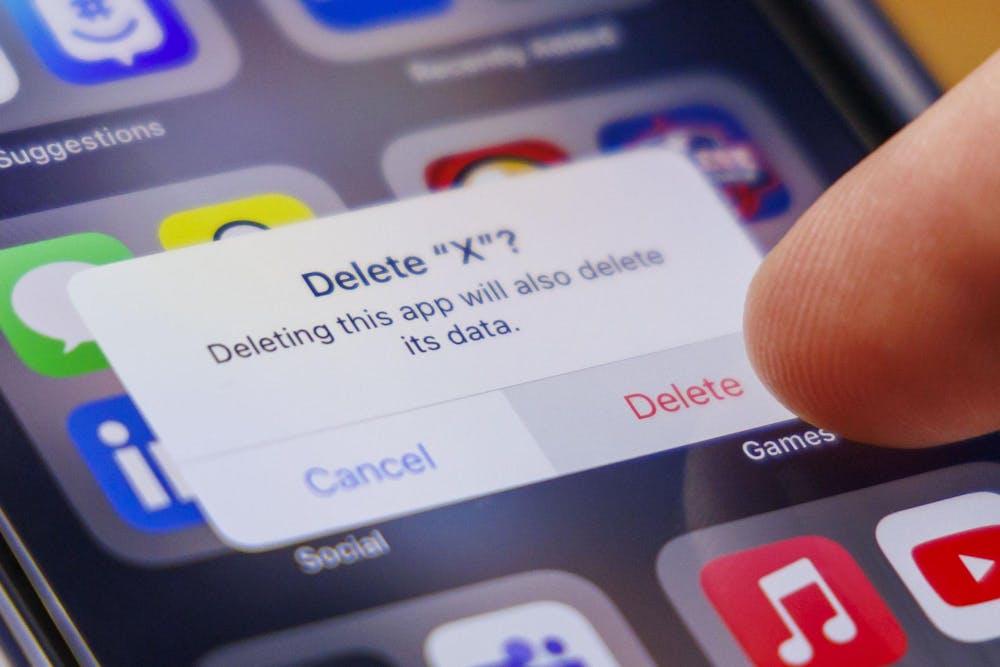In a world suffocated by the constant reminders of how awful our society is, I have always felt social media could be an escape. Whether that be seeing cute videos of puppies or catching up on my weekly indulgence of memes, I like using social media to escape the dreadful news cycle constantly spotlighting horrific events.
That is not to say social media is always beneficial. TikTok recently banned the new trendy term “legging legs” that glorified thinness, so much so that the short-lived hashtag encouraged body-dysmorphia and eating disorders in younger girls. Nothing short of ridiculous, if you ask me.
However, the issue I have with Twitter stems much deeper than disgusting hashtags or the aching feeling that we need to constantly compare ourselves to models. I truly feel as if Twitter has fallen under the influence of the dark web.
Before I get into this discourse, I should clarify that I will not be referring to Twitter as X, nor will I ever. Why Elon Musk’s first decision for the app's future was to rename it a letter will never not seem idiotic to me, but I digress. If Musk’s plan for Twitter was to decrease censorship over content, he has wildly succeeded.
First off, Twitter is now a privately owned social media platform. What exactly does that mean? Essentially the app is subject to less scrutiny, giving Elon Musk the power to dictate what content is shared on the platform. In my opinion, this is precisely the problem now and what has made Twitter terrible.
Twitter used to be an app that was engaging and lighthearted. In Musk’s failed attempt to allow users more freedom with their posts, the only thing he’s ensured is a complete lack of regulation. Have you noticed on Instagram and TikTok, you will encounter pop-ups informing you that the content you are about to view may be sensitive or disturbing to some viewers? This ultimately gives users of those apps the power to decide what they want to see. While some people may find those pop-ups irritating, it allows me to actively control the kind of content that I am subjecting myself to. Even though users may be able to flag their own content as disturbing, the app’s guidelines specify there is no screening or removal of potentially offensive content.
This brings me to my exact reasoning for deleting Twitter. In the heat of the beginning of the Israel-Hamas war, Twitter was flooded with horrific content of devastation and death. This was not the first time I had seen explicit content on Twitter, but I was deeply disturbed about seeing images of corpses in between light-hearted posts. I’m not the only one noticing this dramatic change, either. There has been a documented surge of hateful speech on the app in general.
Do I believe that it is of the utmost importance that we are all educated on what happens in our world instead of living in a state of blissful ignorance? Absolutely. Do I think Twitter is the space for that to be happening? Definitely not. I truly think that everyone should get information on the news where there is credible coverage specifically dedicated to informing the public on important world events. That being said, Twitter is simply not the place.
Not only has there been such horribly graphic content, but the demise of Twitter has cost thousands of workers their jobs. There were once about 8,000 employees working for Twitter. After Musk’s acquisition of the company, he laid off roughly 80% of the staff. Perhaps this is why there is little to no moderation for such content.
I guess the biggest question needing to be answered is how to balance our right to freedom of speech with the protection of what certain groups of people, especially children, have access to. Maybe in the past, Twitter was too regulated and quick to delete posts without much reasoning, but for there to be free reign on all content is just unacceptable. Unless there is a change, or more accurately, an establishment of content regulation, I won’t be redownloading Twitter.
Thalia Alleman (she/her) is a junior studying journalism and public relations.






